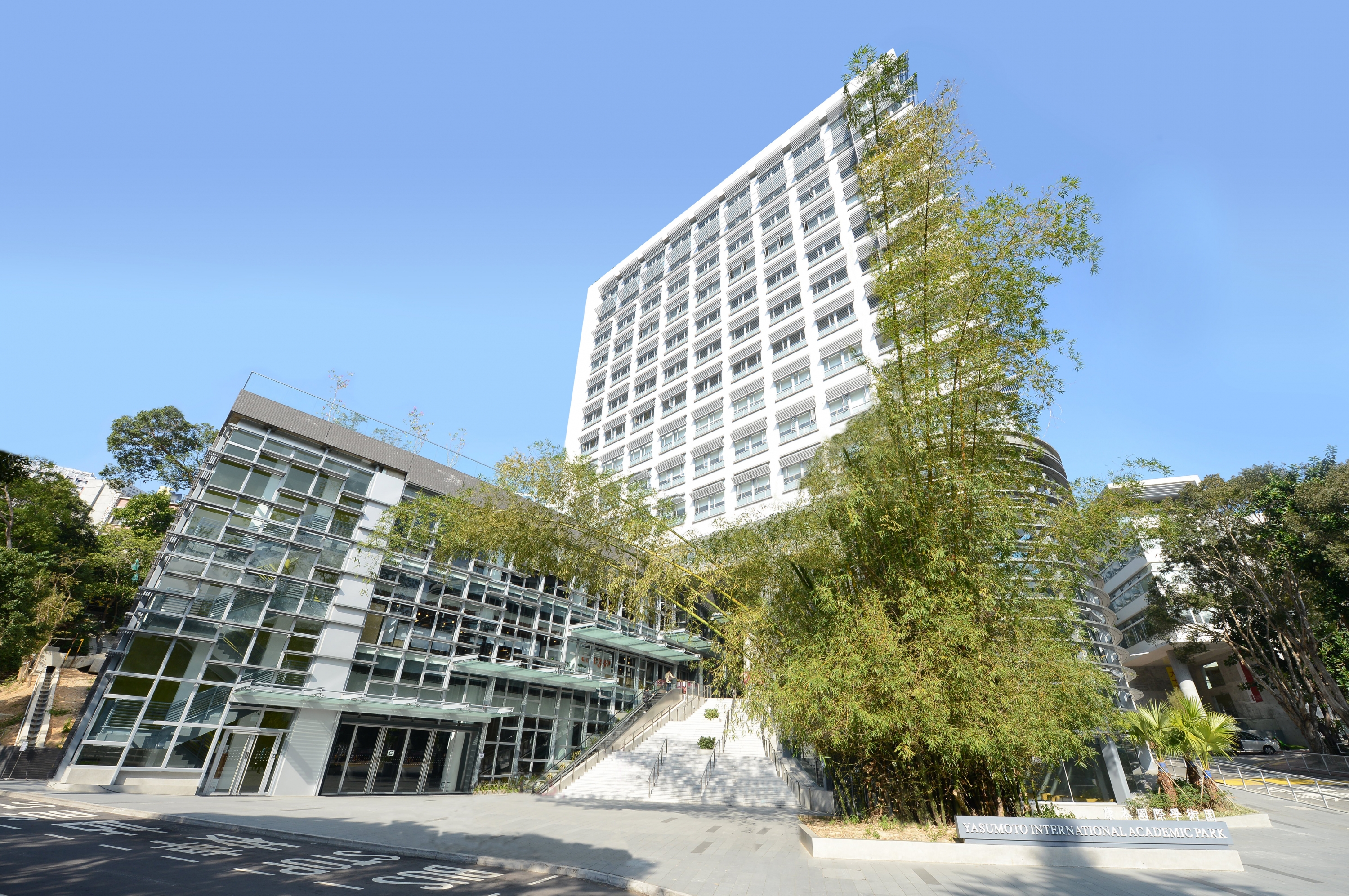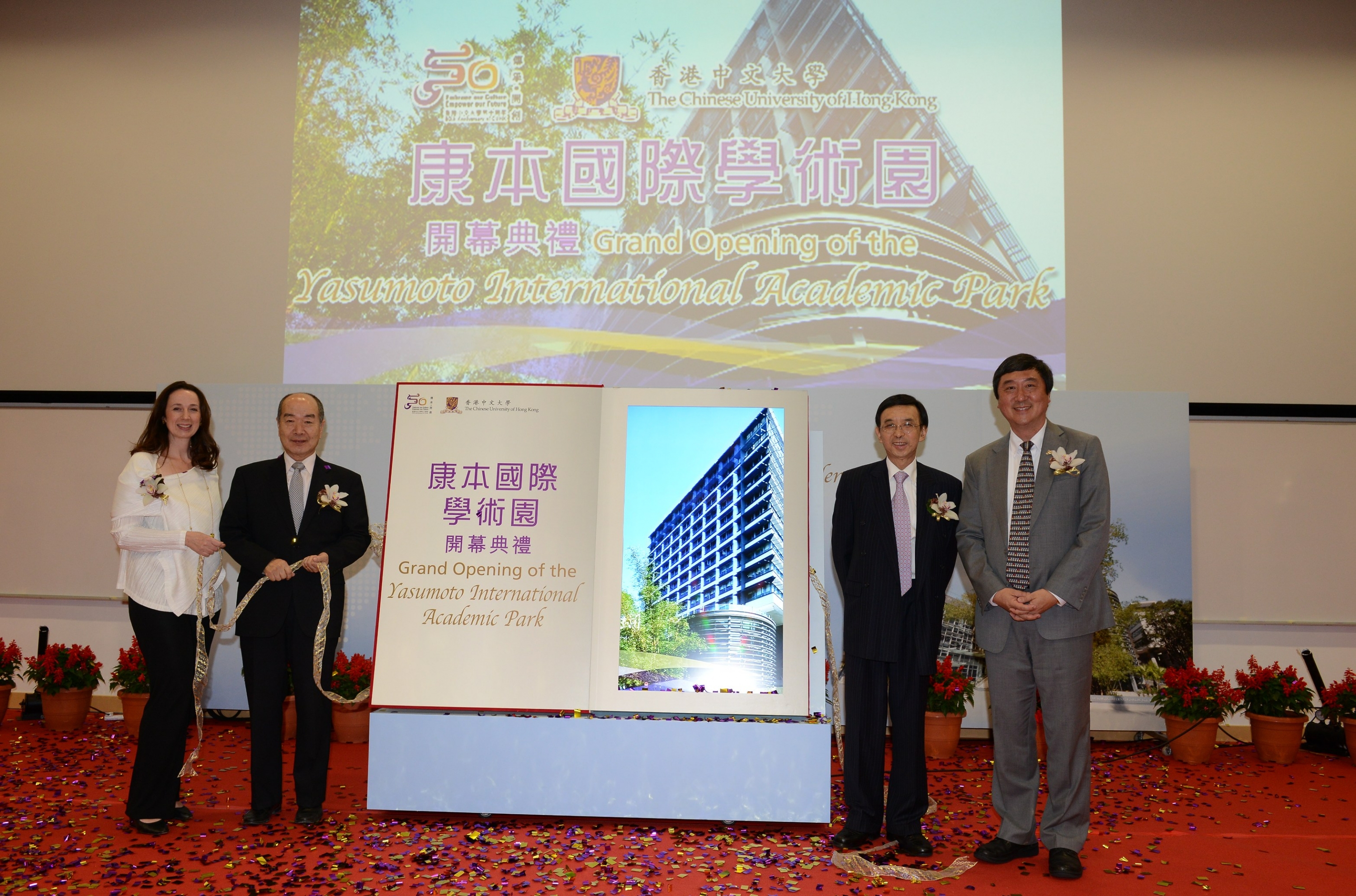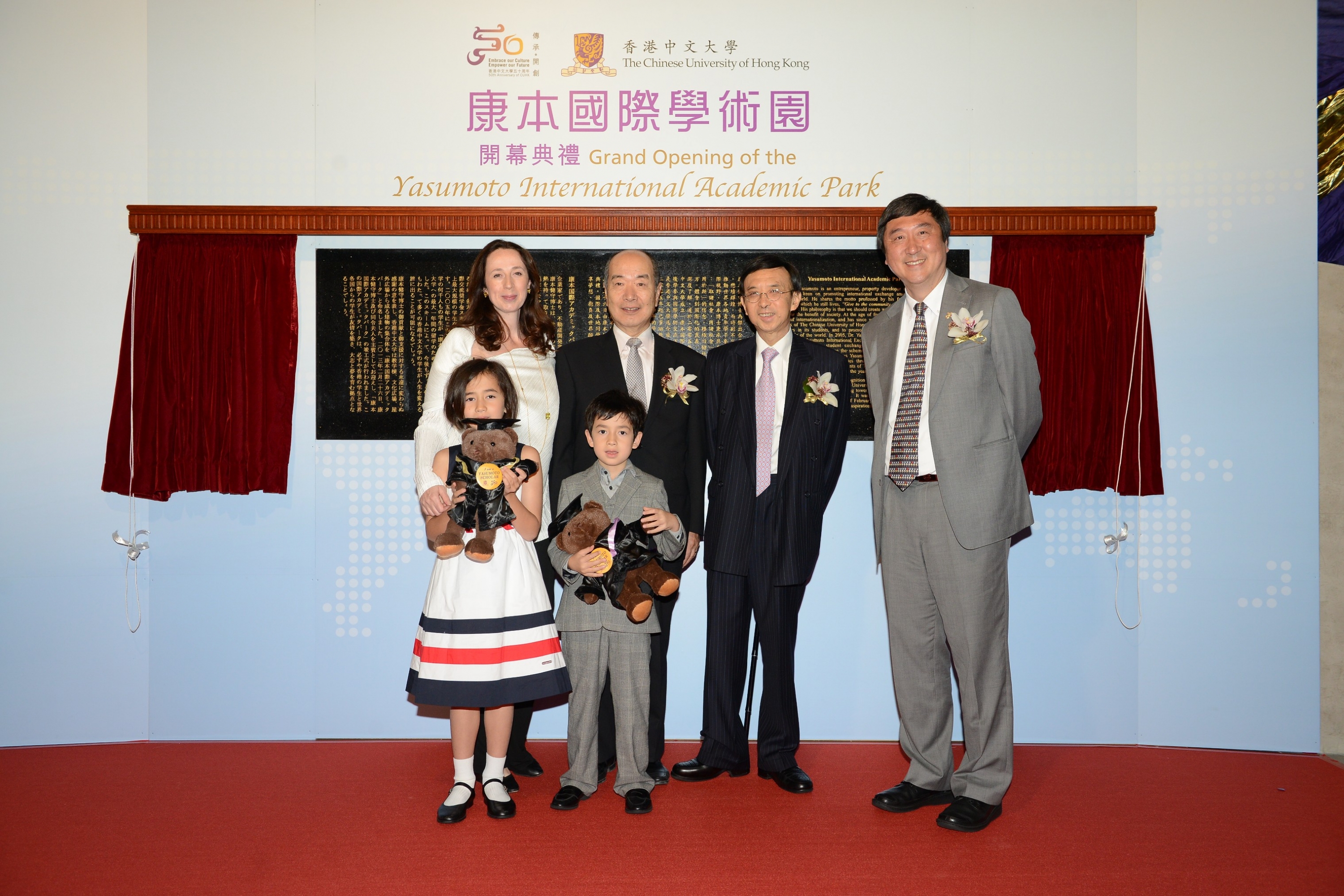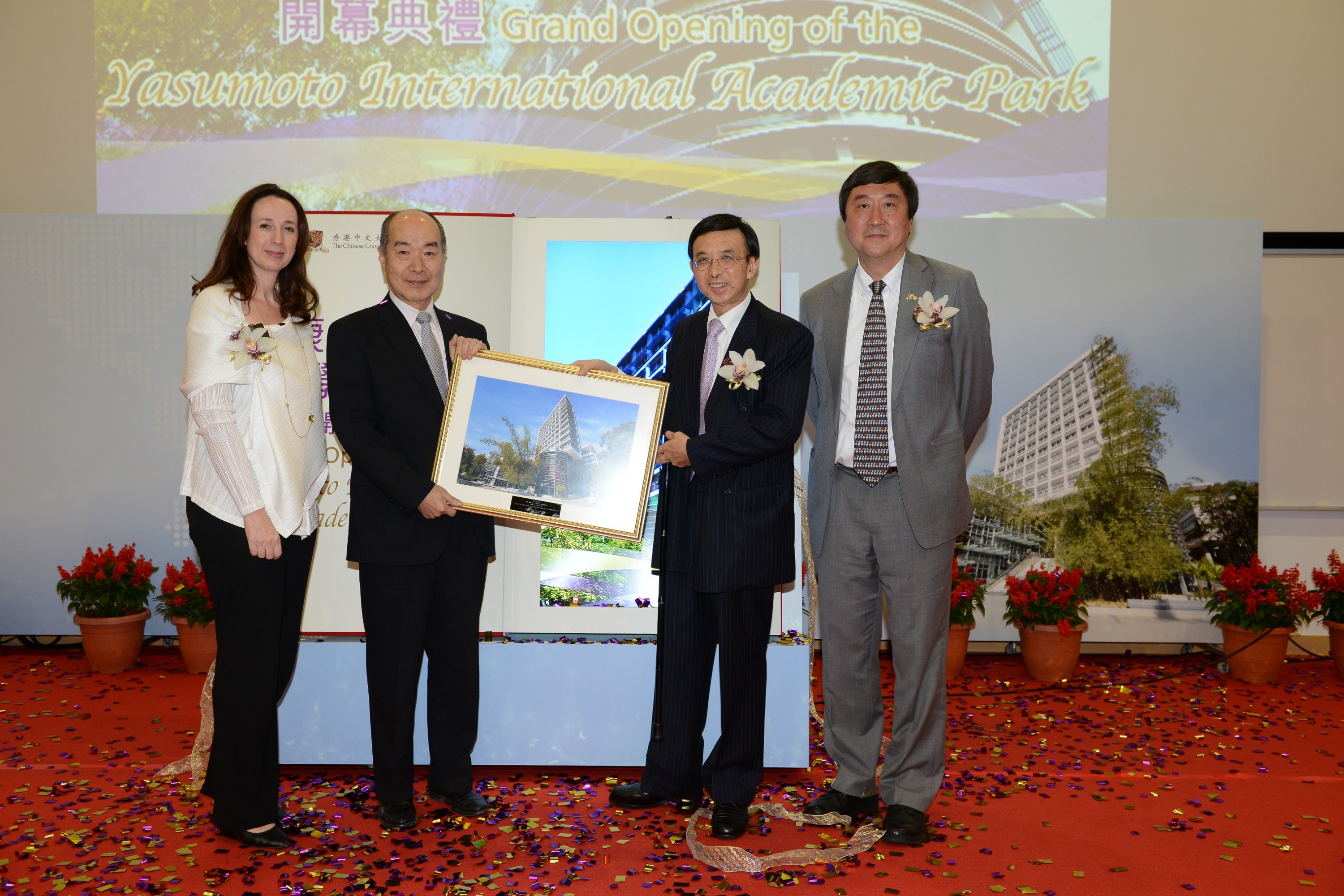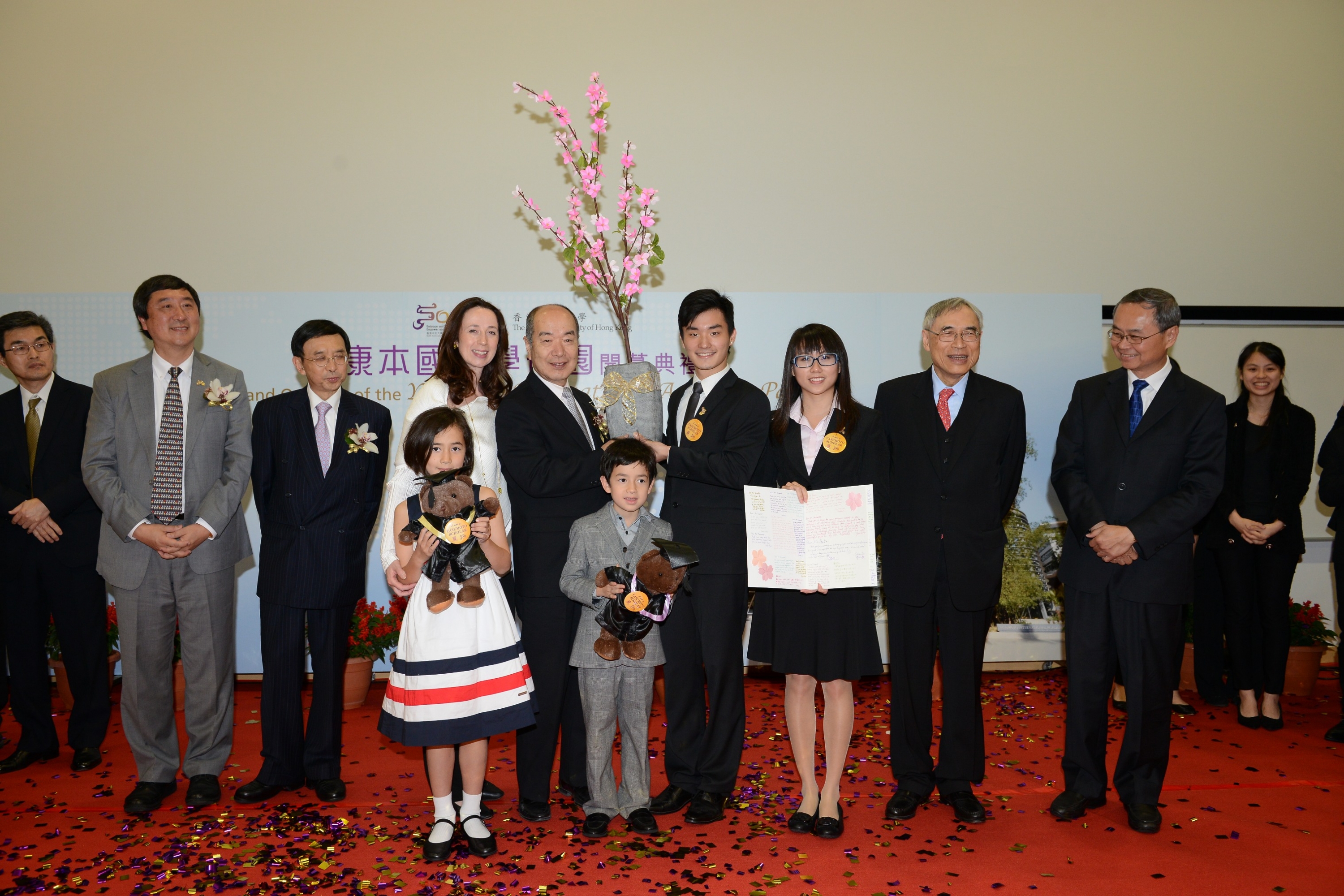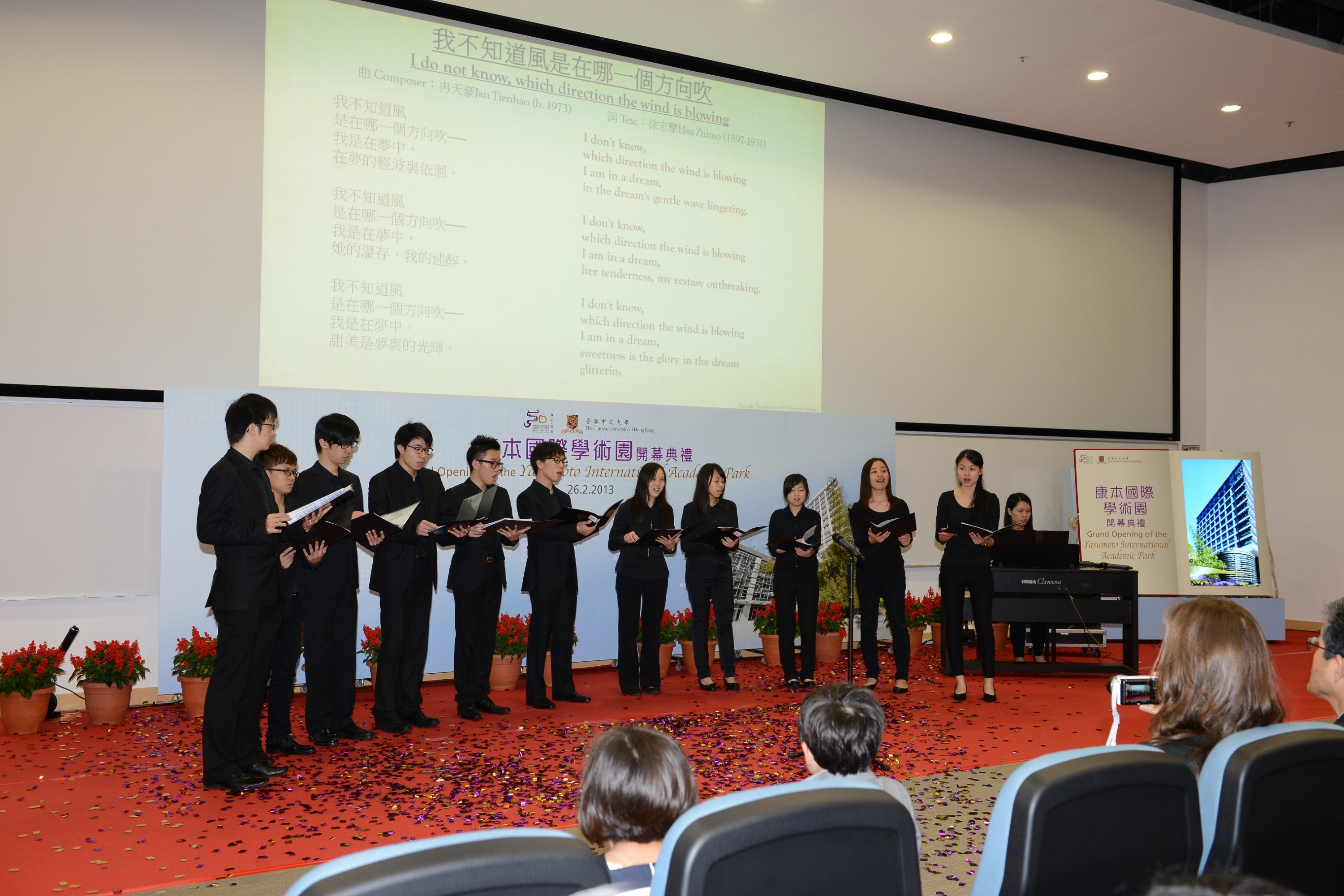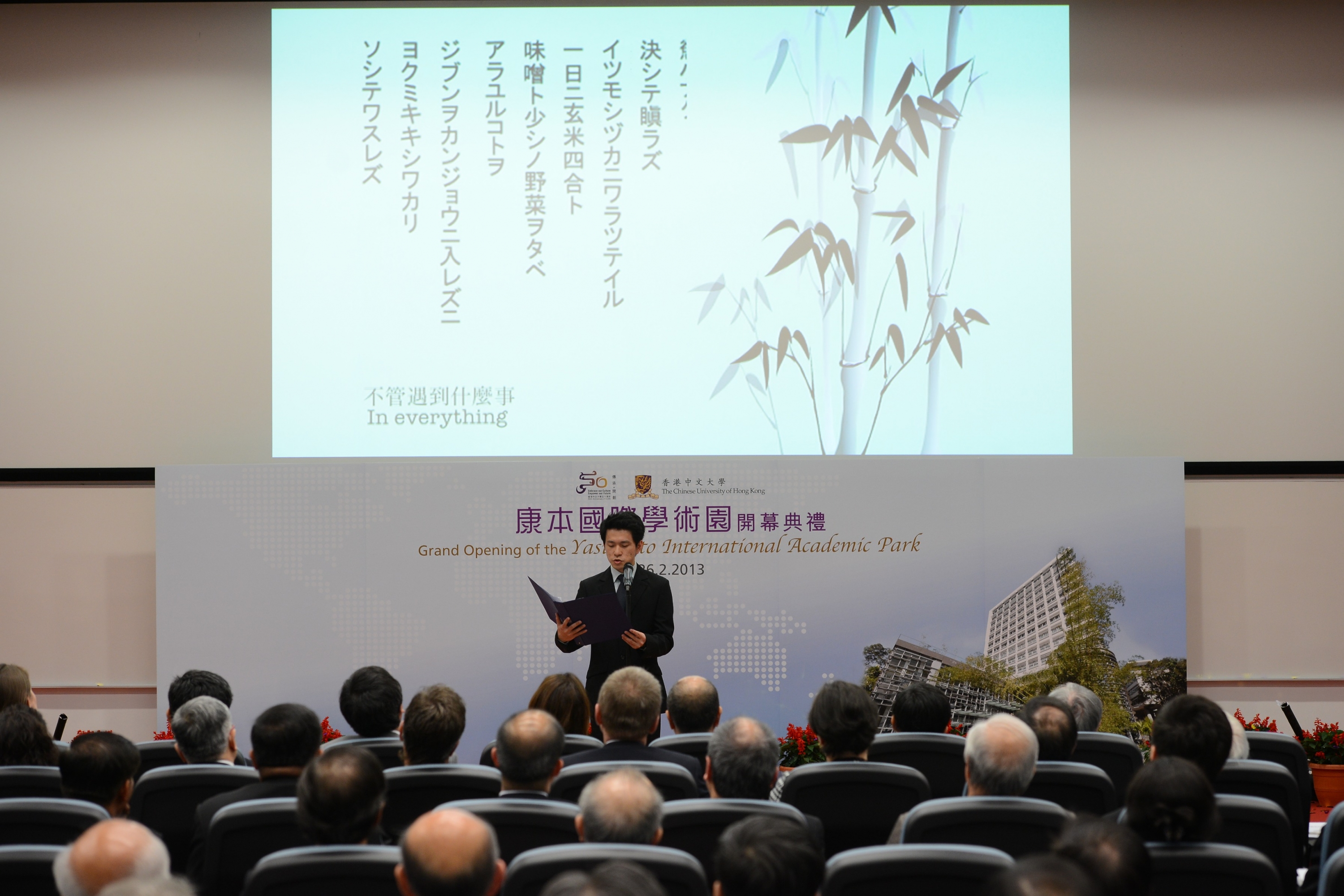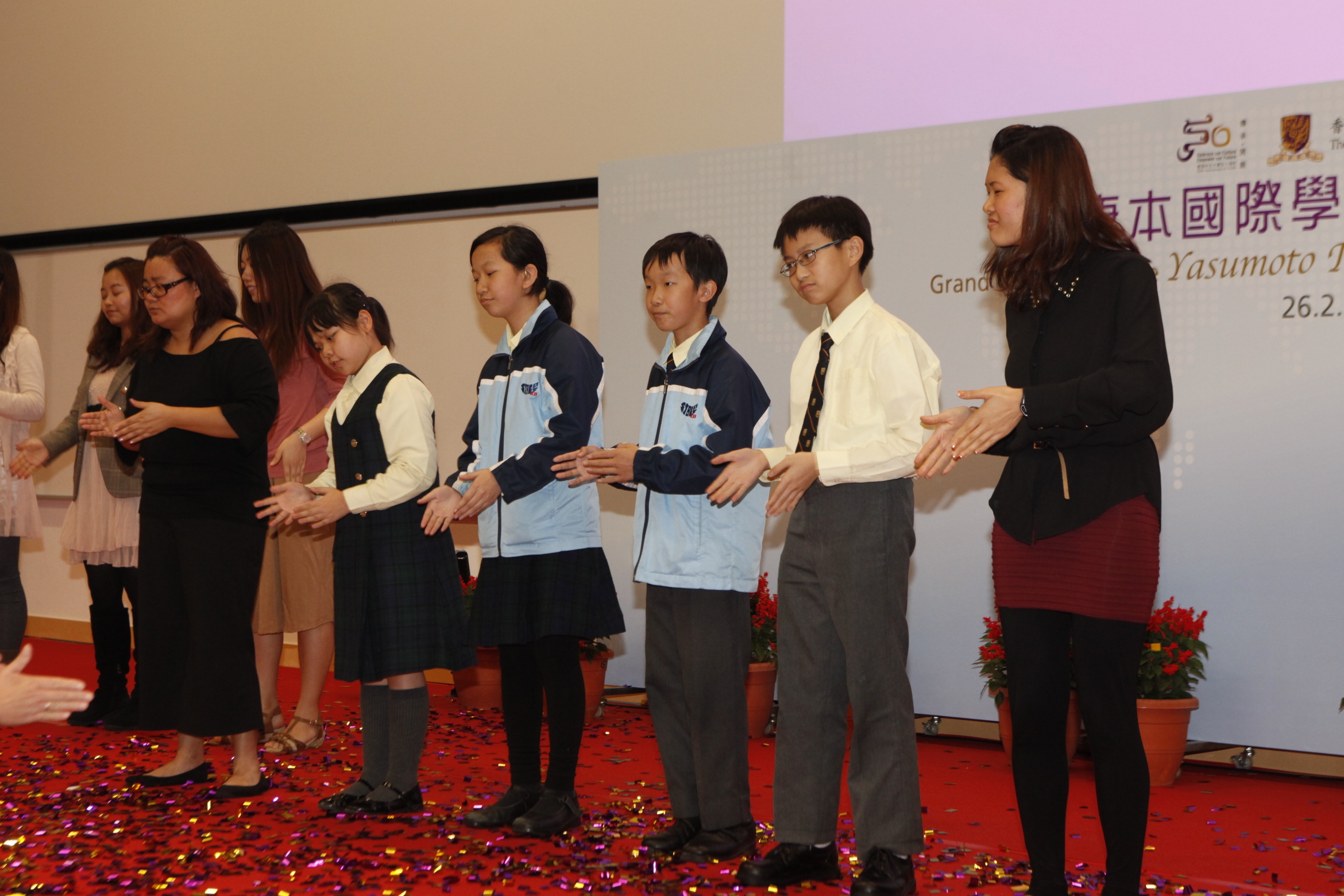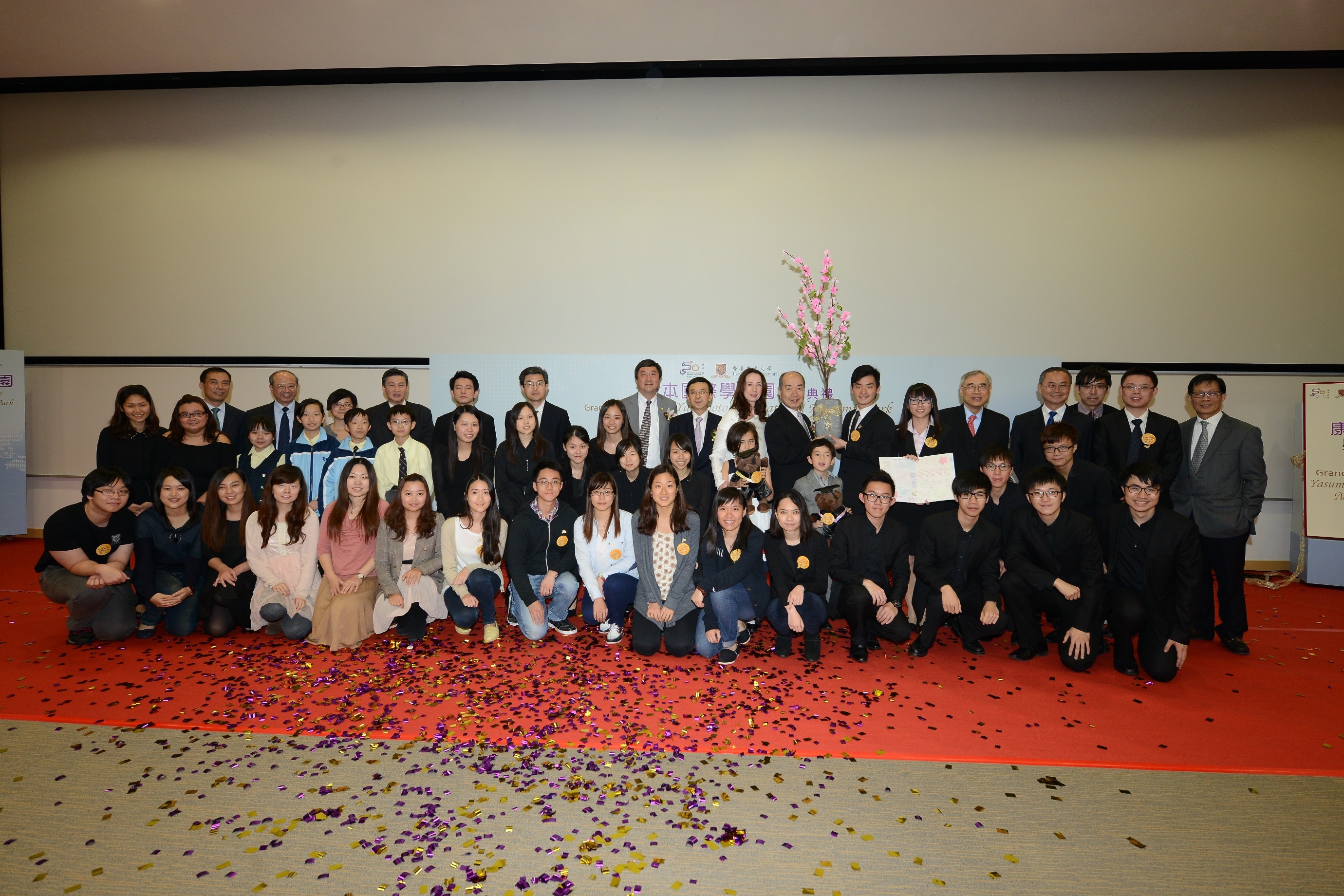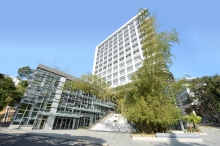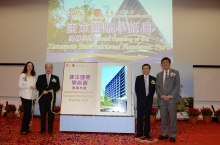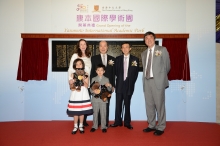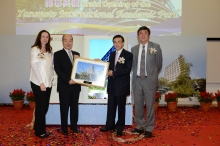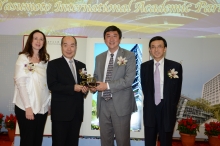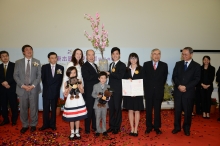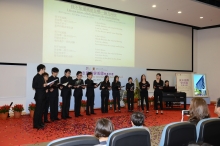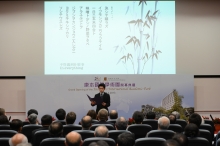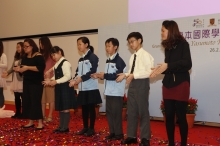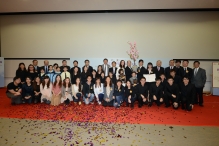CUHK
News Centre
Grand Opening of CUHK Yasumoto International Academic ParkA New Landmark for International Cultural Exchange
|
The Yasumoto International Academic Park, a new significant landmark of The Chinese University of Hong Kong (CUHK), celebrated its grand opening today (26 February). Officiating guests included Dr. and Mrs. Alex K. Yasumoto; Dr. Vincent H.C. Cheng, Chairman of the Council, CUHK; and Prof. Joseph J.Y. Sung, Vice-Chancellor and President, CUHK. Dr. Yasumoto, a Japanese entrepreneur and philanthropist, made a magnificent donation of HK$100 million to CUHK in 2005 to establish the Yasumoto International Exchange Scholarship Scheme in support of international academic exchange activities of the University. The University decided to establish the Yasumoto International Academic Park, as a token of appreciation to Dr. Yasumoto, to meet the needs for educational facility as the University reverted to a 4-year normative curriculum and to enhance cultural exchanges among students. The grand opening ceremony is one of the year-round celebratory events of the CUHK 50th anniversary.
In the opening ceremony, Yasumoto scholars and students benefited from Dr. Yasumoto’s donation expressed their gratitude to him through Japanese poem and sign song singing performances. A significant landmark of cultural exchange The Yasumoto International Academic Park incorporates the concept of cross-cultural understanding with harmony, the grand vision for the world when Dr. Yasumoto made the generous donation to CUHK. The 14-storey high Academic Park comprises an environmentally friendly academic building and a Cultural Plaza, housing lecture theatres, classrooms, a bookstore, a cafe and offices. The Cultural Plaza provides ample space for cultural exchanges, performances and exhibitions and also serves as a cradle for students of all races to bond and share their aspirations. The Office of Academic Links is also located there to provide assistance to students’ exchange activities. The new university bookstore provides a wide variety of academic and leisure books, textbooks and stationery. There is also a cafe run by a social enterprise which promotes healthy eating. CUHK is committed to the promotion of environmental protection and has been actively engaged in the research of relevant new technology. The Institute of Environment, Energy and Sustainability established in 2011 is located in the Academic Park to inspire Hong Kong, mainland China and the world on how to build a sustainable future through research, education and knowledge transfer. In addition, the Academic Park also houses the CUHK Jockey Club Initiative Gaia Office and the Jockey Club Museum of Climate Change. The 800 sq m Museum boasts its multimedia and interactive facilities, and equipment showing satellite images. A central sculptural pedestrian circulation route comprising stairs and escalators is provided in the Park to link the Cultural Square and different parts of the campus. The design assures pedestrian friendliness and makes walking an easy and attractive option for commuting students and staff. Life-transforming exchange experience Many students regard their exchange experience the fondest memory of their life. Not only will they acquire new skills, knowledge and experience while on exchange, they will also discover themselves and acquire a renewed sense of intellectual energy and focus. Among the Yasumoto scholars are some 150 students majoring in Japanese Studies who has spent an academic year studying in different universities across Japan, including those in Nagoya, Osaka, Kyoto and Tokyo. They learn about Japanese society, culture and language. Dr. Yasumoto’s donation has also enabled nearly 600 non-major students to join summer exchange programmes, launching students on a lifetime relationship with the people in Japan. Research on signed language and spoken language acquisition by deaf children With the generous support from Dr. Yasumoto, The Centre for Sign Linguistics and Deaf Studies at CUHK has developed ‘The Child Hong Kong Sign Language Corpus’ and ‘Child Hong Kong Sign Language – Cantonese Bilingual Corpus’, through which several deaf and hearing researchers have been trained to conduct research on signed language and spoken language acquisition by deaf children. Since its inception in 2003, the Centre has been successful in raising public awareness towards the importance of sign language and its potential benefits in deaf education in Hong Kong. |
For more photos, please visit:
https://www.cpr.cuhk.edu.hk/en/events_recap_detail.php?1=1&id=102&s=
(From left) Dr. and Mrs. Alex Yasumoto, Dr. Vincent Cheng, Council Chairman of CUHK, and Prof. Joseph Sung, Vice-Chancellor and President of CUHK officiate at the Grand Opening of the Yasumoto International Academic Park.
Yasumoto scholars and students benefited from Dr. Yasumoto’s donation express their gratitude to him through Japanese poem and sign song singing performances.


